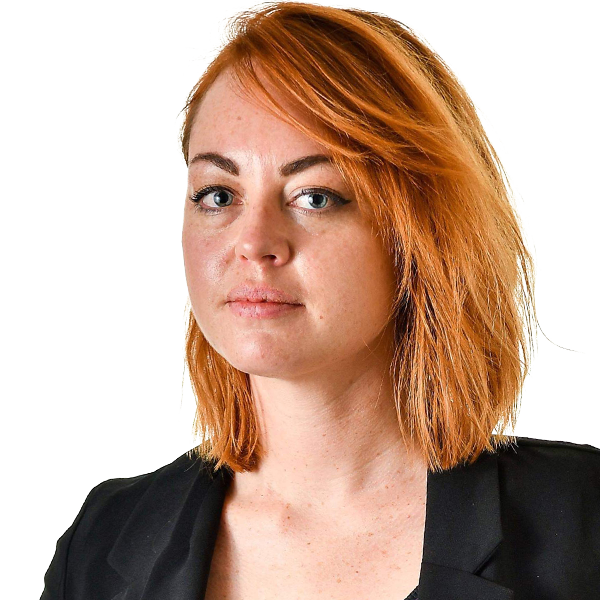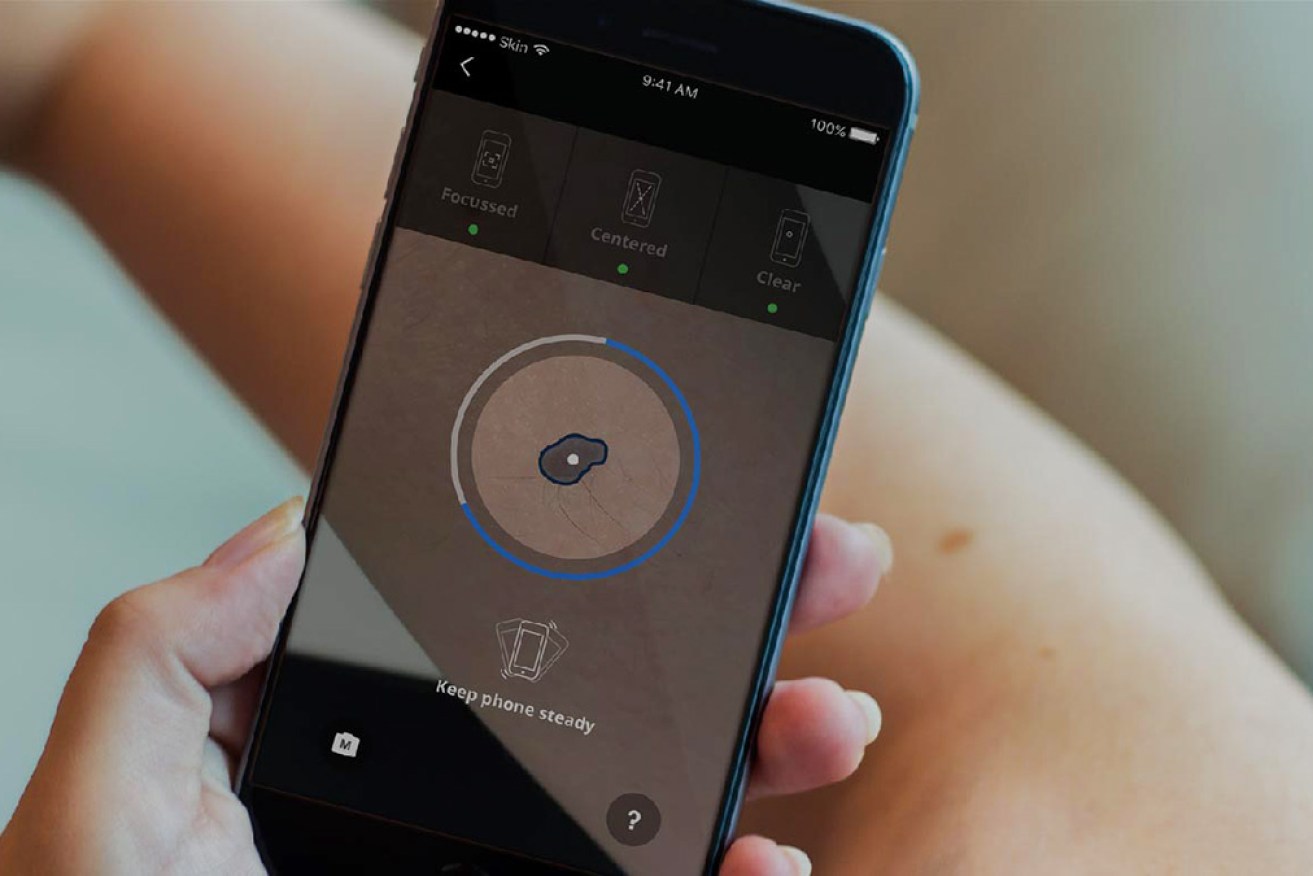Apps can help you detect and track skin cancer, but are they safe?


Skin cancer apps can be useful when used as part of a wider health plan, experts say. Photo: SkinVision
Australians are increasingly turning to their phones to keep an eye on suspicious skin spots, new research has shown – but medical experts have warned it’s not as foolproof as it sounds.
Skin cancer apps for smartphones have been around for about five years, and claim to let users do anything from simply tracking lesion changes to going as far as providing diagnoses.
Research released this week from the Melanoma Institute Australia at the University of Sydney showed more and more melanoma patients were embracing the apps as part of their healthcare plans.
The study spoke to patients with localised melanomas about their willingness and confidence in skin self-examinations. It found individuals embraced the apps’ abilities to track changes over time, and the automated reminders to perform the checks.
Study author and University of Sydney Clinical Epidemiology senior lecturer Katy Bell said they were examining new ways of using technology to support patients in undertaking regular, thorough skin self-examinations, in a bid to catch new or recurrent melanomas earlier.
While the technology might provide peace of mind to some users, dermatologist Saxon Smith urged Australians to view them as part of the bigger picture – not the whole picture itself, a statement Dr Bell agreed with.
Dr Smith said while the apps could be helpful, it was imperative they were used as part of a wider health management plan.
“(They) are just a guidance tool and they have to be done in conjunction with an appropriately trained doctor to ensure what’s being looked at is correct,” Dr Smith told The New Daily.
In fact, he said, they could encourage complacency.
“People are taking photos of things they’re worried about … but they’re not noticing any of what they should be worried about,” said Dr Smith, who is also an associate professor of dermatology at the University of Sydney.
Dr Bell said she only recommended the apps in a research setting.
Dr Smith also warned they’re only useful for a certain kind of skin cancer.
“Cancer Australia does not recommend any of the commercially available apps for melanoma surveillance and I support their statement on this,” Dr Bell told The New Daily.
“We need robust evidence from randomised trials to demonstrate that potential benefits (from earlier detection and treatment) outweigh harms (e.g. from anxiety and unnecessary skin biopsies).”
The majority of apps will track coloured lesions, he said, but the most common skin cancer (basal cell carcinoma or BCC) did not have a noticeable brown or black colouring.
Beyond that, there’s the technical shortfalls in the cameras of smartphones, Dr Smith said.
Because of their adaptive nature, the cameras will not show consistent results – especially if the photos are taken in different lighting habitats.
In the current climate of security threats, it’s also worth considering the app itself: Who designed it and what expertise do they have? Are the photos you take and upload ‘safe’?
The best method
Anyone who is concerned about a shady-looking spot on their skin should visit their GP as a first step, Dr Smith said.
From there, the doctor can make an assessment, taking into context a patient’s medical and family history, and decide if they need to be referred to a specialist like a dermatologist.
People who are at high risk of developing skin cancers should have annual checks with their doctor.
Dr Smith said it was important for people to familiarise themselves with the different kinds of skin cancers and their appearances, to help them spot that “ugly duckling”, should it appear.
Dr Bell said people should enlist the help of their partner to check those hard-to-see areas, and ask their health professional for expert advice.
“You can ask your doctor to show you, and also for printed or video instructions on this,” she said.








